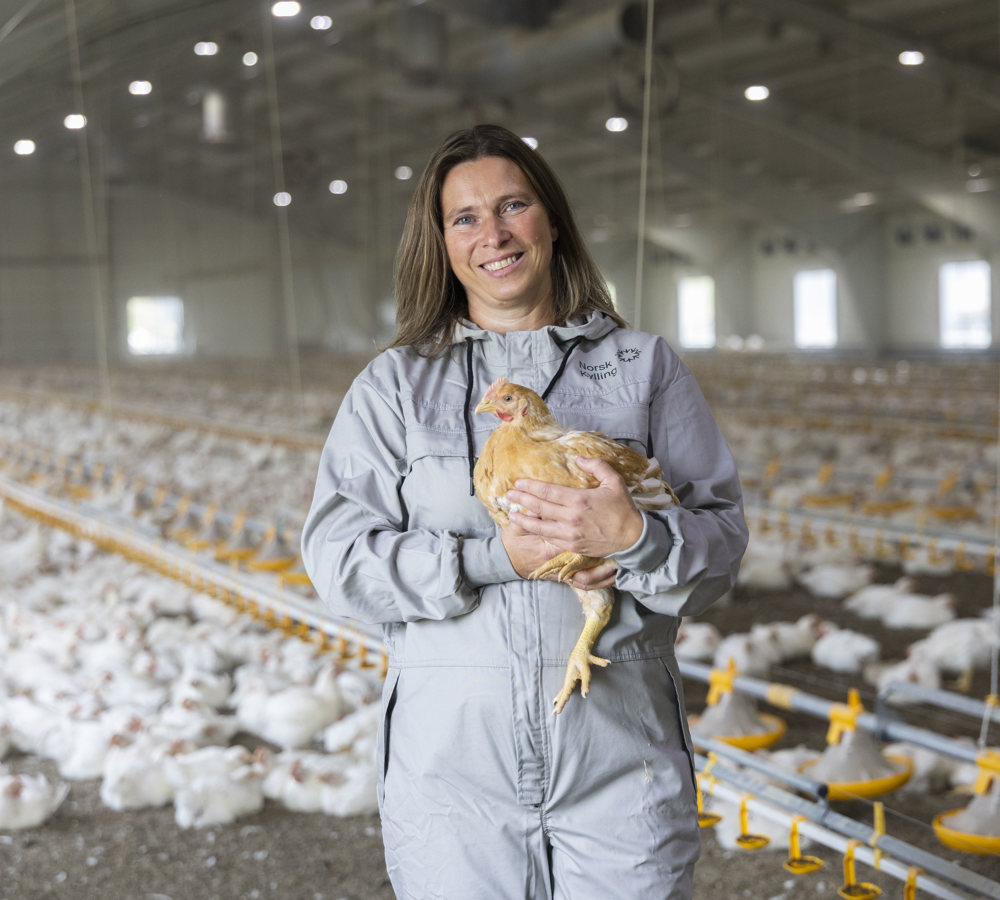Groundbreaking research on animal welfare
Merete Forseth, Chief Veterinarian at Norsk Kylling, has completed a PhD at the Norwegian University of Life Sciences (NMBU) Veterinary School, providing new insights into the health and welfare of different chicken breeds.
Merete Forseth, Chief Veterinarian at Norsk Kylling, has completed a PhD comparing chicken breeds in Norway.
The findings show that chickens that grow more slowly have better health, lower mortality, are more robust, and tolerate environmental changes better than fast-growing chickens.
Her PhD, Health and Mortality in Two Broiler Chicken Hybrids with Different Growth Rates, is the first study in Norway to compare animal welfare between slower-growing and fast-growing chickens.
The aim of her doctoral work has been to increase knowledge about health and animal welfare in broiler chickens with different growth rates under Norwegian conditions. The research has already influenced political decisions. The government has used her PhD findings in the drafting of the new animal welfare law, where they will now monitor the poultry industry’s transition to a slower-growing chicken breed.
A slower-growing chicken has better health and is better able to express more of its natural behavior.

60 million chickens analysed
Forseth’s research is based on analysis of 60 million chickens over a six-year period (2015–2021). Using slaughter data, she has mapped how growth rate affects health and mortality, and the findings show clear differences between the two most common chicken breeds in Norway. The results show that the Hubbard JA787 has 86 percent lower incidence of heart conditions than the Ross 308. In addition, transport mortality for Hubbard chickens is nearly five times lower than for Ross.
– Rapid growth places a great strain on the body. A slower-growing chicken has better health and is better able to express more of its natural behavior, explains Merete.
The way forward
We have taken a clear stance, and in 2018 we moved away from Ross in favor of Hubbard. Forseth continues her work with us but will also contribute to projects at the Veterinary School (NMBU), NTNU, and international research environments.
Merete's doctoral thesis is avaliable to read here.